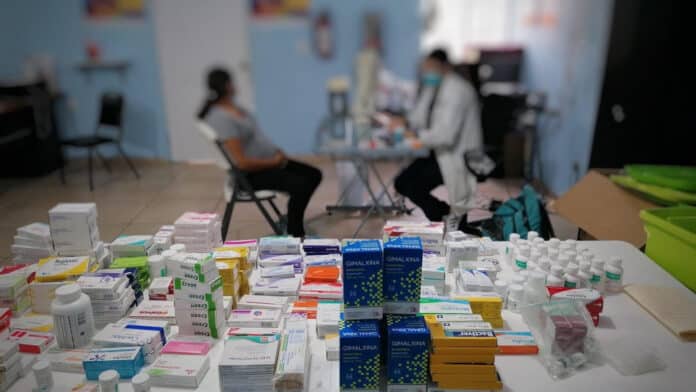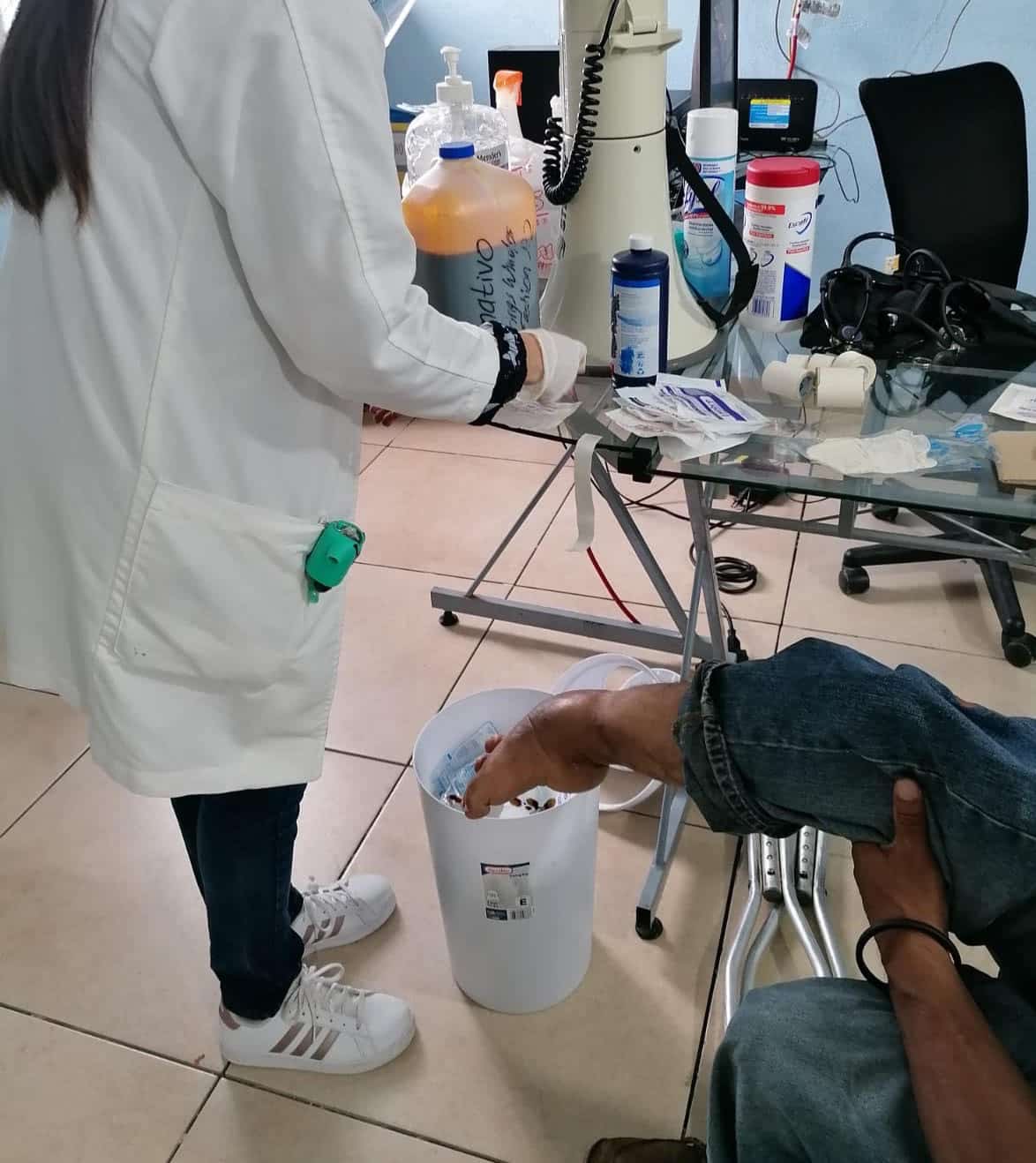
Migrants living in Reynosa after they were sent back from the U.S. are now receiving medical attention from physicians hired through partnerships forged between U.S. and Mexican nonprofit organizations.
Three doctors and two dentists, all licensed in Mexico, are making the rounds at the plaza, where a makeshift camp has grown to several hundred people, and Senda de Vida, a shelter in Reynosa.
“This is something brand new for the Sidewalk School. We’ve never paid the salaries of doctors and dentists, but it’s something that we needed so we’re doing it,” Felicia Rangel-Samponaro, cofounder of the Sidewalk School, said Tuesday.
The medical and dental visits started last week at the plaza and shelter.
Paying the salaries for the physicians and dentists was a more economical option for the nonprofit organization that shifted its focus to Reynosa from Matamoros after the migrant encampment closed in March.
“By hiring them, it’s saved us thousands of dollars,” Rangel-Samponaro said.
Since they began helping migrants at the plaza, the Sidewalk School co-founders started noticing a growing need for medical services. Migrants with disabled children, especially, became their focus.
Some of the vulnerable migrants they encountered were taken out of the plaza, placed in a hotel, taken to doctors and given medicine. The Sidewalk School, which began to help provide education to migrant children living in Mexico, began to change its mission.

“The Sidewalk School is growing into something a whole lot more that we never thought we would be taking on, but we are more than happy to do it because this is a necessity,” Rangel-Samponaro said.
Donations help fund their efforts, but paying hotels, food, doctors and medicine is costly.
“We were running out of money,” Rangel-Samponaro explained. “We are still running out of money, because we were doing that for so long.”
For example, she said, 15 COVID-19 tests administered to migrants moving from the plaza into a shelter costs them about $780.
Meanwhile, other nonprofits based in Mexico that normally serve residents struggling with poverty were also pivoting to respond to the humanitarian crisis unfolding at their doorstep.
For the last four or five years, a conglomerate of churches in Reynosa banded together to provide food and medicine to families in need, Pastor Jonathan Guerrero said.
Guerrero is the pastor of one of those Reynosa churches, Iglesia Bautista Horeb. In 2017, they grew from helping with food to also working with doctors to offer medical services.
Although they are primarily made up of Mexican churches, they occasionally receive help from US-based churches that donate clothes and shoes. Guerrero said the churches that form part of the humanitarian efforts are inclined to help their neighbors and foreigners alike.
“We share the gospel of Jesus Christ, but it’s also necessary to have our actions show that He lives in us,” Guerrero said.
When the encampment opened in Matamoros, they set their sights on them. After it closed and hundreds began arriving in Reynosa, they moved and showed up at the plaza three months ago. Eventually, they connected with The Sidewalk School.
Rangel-Samponaro leveraged the experience and connections from the church conglomerate to come up with a more economically-sustainable option to continue caring for vulnerable migrants. She credited the pastor with “all the legwork” while her organization took care of the bill.
One of the greatest costs are COVID-19 tests, which are necessary for migrants moving off the plaza and into shelters. Rangel-Samponaro said some were donated, but she expects those will run out soon as hundreds of migrants continue getting sent back to Mexico.




